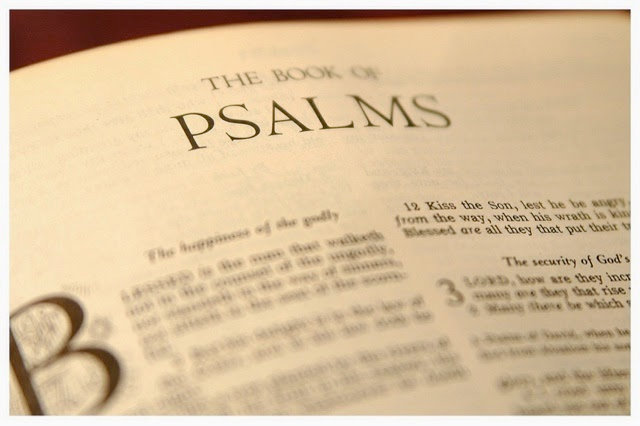David’s soul thirsts for the Lord
We are looking at the second half of Psalm 6. David, under the disciplining hand of the Lord, continues to beseech the Lord for relief from the anguish he is in. David feels as if his life is at the brink of death. He says in verse 4, “Turn, O Lord, deliver my life; save me for the sake of your steadfast love.”
David asks the Lord to turn toward him because the Lord had withdrawn his favorable presence. David isn’t only worried about his physical life, his soul thirsts for the blessed fellowship with the Lord. So he pleads with the Lord for the sake of the Lord’s “steadfast love.”
David draws from the way the Lord revealed himself to Moses: “The Lord, the Lord, a God merciful and gracious, slow to anger and abounding in steadfast love for thousands, forgiving iniquity, transgression, and sin, but who will by no means clear the guilty”
The Lord’s steadfast love is connected to his promise to forgive the sins of those who come to him in faith. David doesn’t appeal on the basis of any merit in himself or anything he had done in the past. His appeal is based solely on the grace of the Lord. All people are guilty of sin. Those who don’t avail themselves of the steadfast love of the Lord remain in a guilty state.
We should pause and remember what faith entails. Faith is knowledge of the things which are to be believed, which are revealed by God. This knowledge must be joined with assent to the truth. You cannot assent to something you are ignorant of, nor something you doubt. The assent is founded upon the infallible veracity of God. David takes hold of God’s promise in the midst of his suffering.
When we see the misery David is in and his subsequent crying out to the Lord in faith, it points us to the love of God in salvation. As the Father freely offers the Son, Christ the Lord freely offers himself, with all his benefits and the fullness of salvation that resides in him, to the sick and weary soul.
The soul conscious of its own misery and guilt, as David was, considering the fullness of salvation that is in Christ and desiring communion with him, accepts Christ’s offer and makes it his own. Whatever is offered in Christ the believer claims for himself, of which forgiveness of sins and the righteousness of Christ are the foundation of salvation.
Faith that is true cannot be argued away from Christ by the objections and vain arguments of men who set themselves up as wiser than God and have never apprehended the misery of their own souls before God. David doesn’t consider searching for another source of salvation. Rather, he presses his appeal for the Lord’s help. So too, the believer in difficulty calls on the Lord, setting his seal that God is true and that there is no help but in God.
David in his misery became depressed. We read in verse 6, “I am weary with my moaning; every night I flood my bed with tears; I drench my couch with my weeping.” David exaggerates his tears to convey the agony he is in.
Everything seems dark to David: “My eye wastes away because of my grief; it grows weak because of all my foes” (verse 7). David is having trouble seeing, his mind is cloudy. The eye is the light of the soul, and in David’s condition, darkness muddled his sight of the Lord. Nevertheless, David rested on the unchanging grace of the Lord, and so must we in such times.
In verses 8-10, we see that the Lord heard and answered David’s prayers for relief: “The Lord has heard my plea; the Lord accepts my prayer” (verse 9). We don’t know how long David suffered. We learn here to remain constant in prayer and wait on the Lord’s sovereign will to lift up our head in due time when we go through times of misery and darkness, or any affliction.
Now that David has been relieved by the Lord, he rebukes his enemies (verse 10). He knows their ability to hurt him was granted by the Lord, but that doesn’t change the fact they are culpable for their sin against David. David was granted relief and restored by the Lord, vindicating his faith. Whereas the enemies of God and God’s people will perish in due time and be “put to shame in a moment.”



